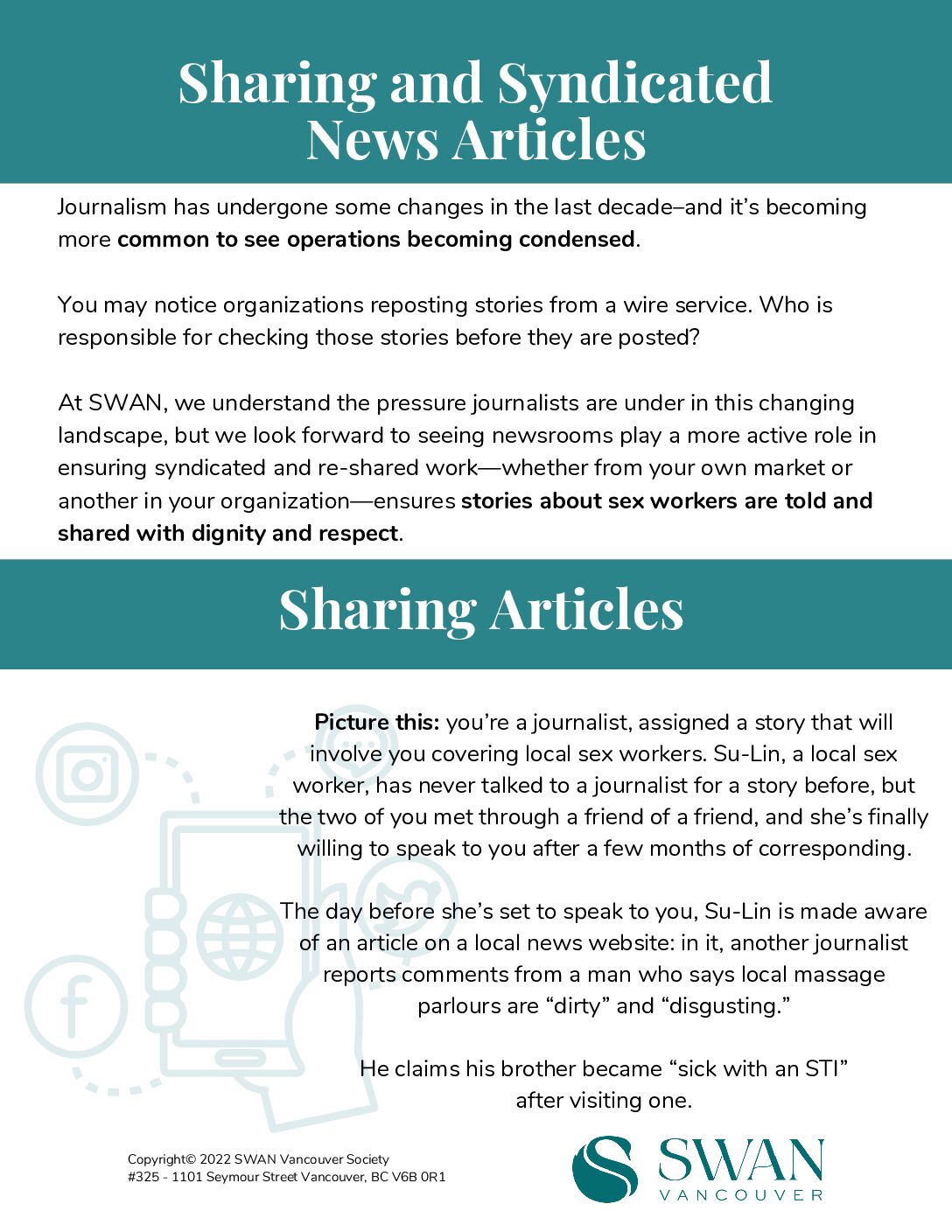Journalism has undergone some changes in the last decade–and it’s becoming more common to see operations becoming condensed.
SWAN understands the immense pressures journalists face in this changing landscape, but it’s critical to ensure stories about sex workers are being told and shared responsibly. When articles go viral or are syndicated across markets without adequate vetting, misinformation can spread.
How can this harm people engaged in sex work?
The speed and distance with which information spreads on the internet means journalists have to take extra care when writing or sharing a story, especially if they are reporting on someone in a precarious position–such as an im/migrant sex worker. Sharing and syndication may affect sex workers in the following ways:
- The more viral the story, the more scrutiny it’s under – this can put the spotlight on vulnerable people in a way that compromises their safety and wellbeing (e.g., doxxing)
- Context can vary from one media market to another – a certain story may cause a moral panic in an area where it didn’t exist previously
- Stories may be shared without being fact checked, contributing to harmful narratives, misinformation and stereotypes.
Read SWAN’s full resource on this topic for more details on how to share and syndicate articles responsibly.
for the full list of resources

